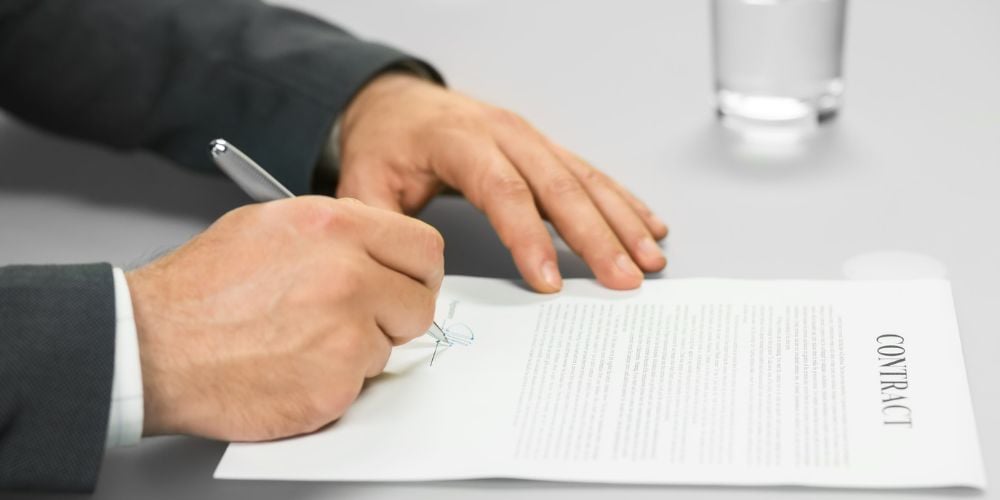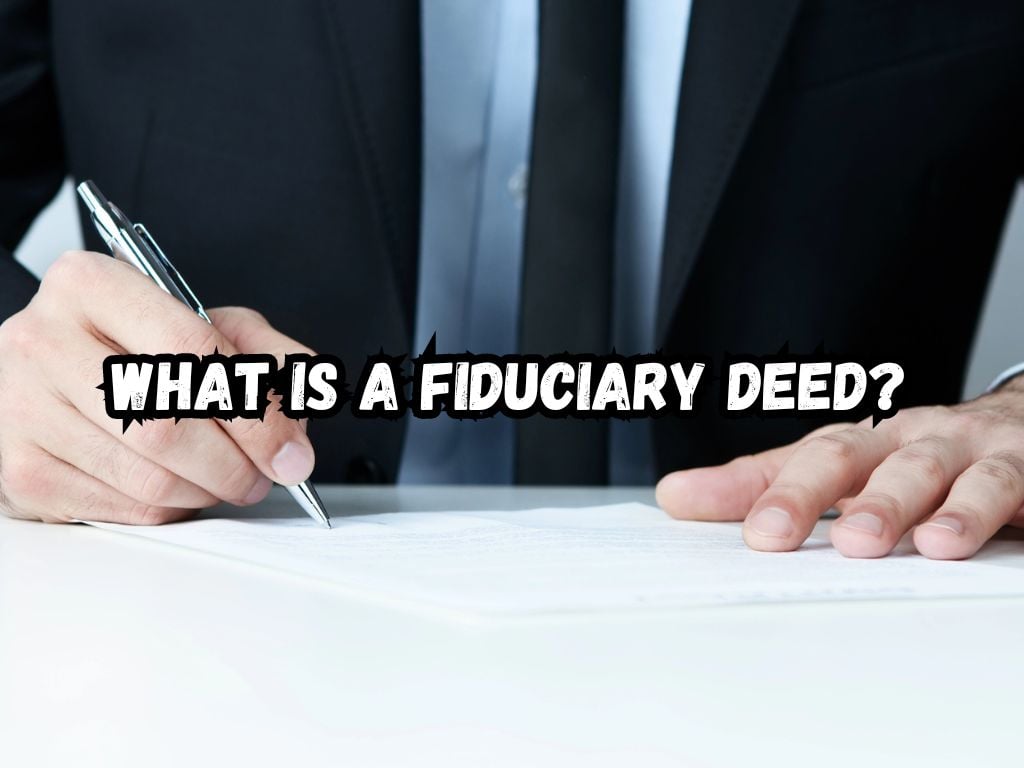Probate and property law can be perplexing, especially when navigating sensitive matters like inheritance and estate planning. To ensure a smooth transition of property ownership, a fiduciary deed is often used.
This guide will unveil the intricacies of a fiduciary deed, its significance, and how it operates within legal property exchanges.
What is a Fiduciary Deed?
At its core, a fiduciary deed is a legal document used to transfer property ownership. It’s not just any kind of property transfer but one that involves a fiduciary.
A fiduciary, by definition, is an individual or institution responsible for managing assets for the benefit of another person or group.
In the context of fiduciary deeds, this responsibility comes into effect in situations like the execution of a will after someone’s demise or during the management of a trust. By this instrument, a fiduciary can transfer property title to the rightful beneficiaries.

The Role of a Fiduciary in Property Transfers
Fiduciaries play a crucial role in property transfer through fiduciary deeds. They stand in a position of trust and confidence, with obligations that go beyond just a transfer of assets.
Duties and Responsibilities
The fiduciary, often an estate executor, a trustee, or an agent under power of attorney, owes legal and ethical duties to the beneficiaries.
They have to act prudently, with discretion, respect for confidentiality, and utmost good faith. In a fiduciary deed transaction, their role extends to ensuring accurate documentation, compliance with statutes, and the protection of beneficiaries’ interests.
Types of Fiduciary Deeds and Their Applications
Real estate laws recognize different types of deeds, each with its unique stipulations and use cases. How does a fiduciary deed fare when juxtaposed with other deed types?
Fiduciary Deed Vs. Warranty Deed
The fiduciary deed should not be confused with a warranty deed. While a fiduciary deed simply transfers the title of a property as per a court directive or will, a warranty deed not only transfers title but also ensures the property is free from all liens and encumbrances.
Fiduciary Deed Vs. Quitclaim Deed
Comparatively, a fiduciary deed seems to share common ground with a quitclaim deed in the sense that both do not offer any warranty as to the title of the property.
Nevertheless, fiduciary deeds, unlike quitclaim deeds, come with the confidence that the fiduciary has the legal authority for the property transfer, thanks to court supervision or expressed will provisions.
The Legal Framework Surrounding Fiduciary Deeds
The world of fiduciary deeds is governed by intricate legal rules that differ from one jurisdiction to another. Despite these variations, some common legal principles cut across different jurisdictions.
Powers Accorded to Fiduciaries
The fiduciary wielding the fiduciary deed must rely on the powers accorded to them by the will or the court order. They are under a legal obligation to stay within these express limits.
Dual Role Restrictions
Fiduciaries, by virtue of their role, should not stand to gain personally from their actions. More precisely, they cannot benefit from the property they are transferring to the beneficiaries.

The Step-by-Step Process of Obtaining a Fiduciary Deed
To better understand the fiduciary deed process, let’s delve into the steps a fiduciary needs to follow for a successful property transfer.
Documentation Phase
Unsurprisingly, this phase involves a lot of paperwork. The fiduciary needs to have evidence of their authority to act on behalf of the estate. This often relies on will provisions or court orders.
Verification Phase:
The fiduciary then verifies the property’s status. This involves identifying any debts, liens, or mortgages on the property. The deed can’t be issued until all financial obligations are cleared.
Execution and Recording:
Once all preliminary phases are cleared, the fiduciary can go ahead to prepare, sign, and record the deed officially.
This solidifies the property transfer and pin down the beneficiaries as the new legitimate owners. It’s important to remember that these steps are governed by a mix of state and local laws designed to protect everyone involved.
Pros and Cons of Fiduciary Deeds
Like every legal instrument, fiduciary deeds come with a balance of pros and cons.
Advantages of Fiduciary Deeds
One key advantage that stands out is trust. There’s a sense of confidence, knowing that the fiduciary is acting under the watch of the court or within the directives of a legal will. Beneficiaries are assured that the transfer is both legal and ethical.
Disadvantages of Fiduciary Deeds
The downside is in the complexity of fiduciary deeds. They demand a keen eye for legal details, clear documentation, and strict adherence to applicable laws. Errors or oversight can spark disputes and legal challenges which can further complicate the transfer process.
Real-World Examples of Fiduciary Deed Transactions
To drive home the practical application of fiduciary deeds, let’s run through a relatable real-life scenario.
Suppose an individual, let’s call him John, becomes the legal heir to his late aunt’s residential property.
Being the fiduciary, the executor of the estate, as dictated by the will, must now facilitate the property transfer via a fiduciary deed. This action solidifies John’s ownership in a legal framework.
FAQs
Whom does a fiduciary represent?
In a fiduciary deed scenario, the person who the fiduciary represents is referred to as the principal. The principal can be a decedent from whom the fiduciary is the estate’s executor, or a trustor where the fiduciary is a trustee. In both instances, the fiduciary functions for the benefit of the beneficiaries.
Can a Fiduciary Beneficiary revoke a deed?
Once a fiduciary deed is recorded and the property’s title has changed hands, it’s irrevocable unless the beneficiaries run afoul of other legal issues like fraud.
Conclusion
Working through probate or trust property transfer need not be an uphill battle; Obstacles are smoothed out under the right legal framework that encompasses fiduciary deeds.
Better understanding the intricacies of this legal instrument empowers fiduciaries, beneficiaries, and property owners alike when navigating these legal terrains.


 Tags:
Tags:










